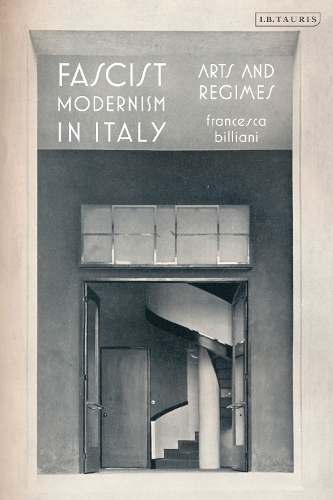
Fascist Modernism in Italy: Arts and Regimes
(Paperback)
Publishing Details
Fascist Modernism in Italy: Arts and Regimes
By (Author) Francesca Billiani
Bloomsbury Publishing PLC
Bloomsbury Publishing PLC
23rd March 2023
United Kingdom
Classifications
Tertiary Education
Non Fiction
History and Archaeology
Far-right political ideologies and movements
Political structure and processes
320.53309450904
Physical Properties
Paperback
256
Width 156mm, Height 234mm
Description
Between 1917 to 1975 Germany, Italy, Portugal, the Soviet Union, and Spain shifted from liberal parliamentary democracies to authoritarian and totalitarian dictatorships, seeking total control, mass consensus, and the constitution of a new man/woman as the foundation of a modern collective social identity. As they did so these regimes uniformly adopted what we would call a modernist aesthetic huge-scale experiments in modernism were funded and supported by fascist and totalitarian dictators. Famous examples include Mussolinis New Rome at EUR, or the Stalinist apartment blocks built in urban Russia. Focusing largely on Mussolinis Italy, Francesca Billiani argues that modernity was intertwined irrecoverably with fascism that too often modernist buildings, art and writings are seen as a purely cultural output, when in fact the principles of modernist aesthetics constitute and are constituted by the principles of fascism. The obsession with the creation of the new man in art and in reality shows this synergy at work. This book is a key contribution to the field of twentieth century history particularly in the study of fascism, while also appealing to students of art history and philosophy.
Reviews
Francesca Billiani invites us to push the boundaries of a monolithic and simplistic view of State art to embrace the complexities of the relationship between arts and power with a courageous interdisciplinary approach. [] the author convincingly demonstrates how the arts have contributed to the shaping of authoritarian practices [], arguing for literature, visual arts, sculpture and architecture to be read not as distinctive and separate fields rather as parts of a complex cultural system. * Italian Studies *
Meaningful in its contents and insightful in its analyses. Fascist Modernism narrates a paradoxical story in which innovative expressive potentials and censorship, art for the masses and underground and elite culture can coexist. A book to be read both for cultural enrichment and for pleasure. * Professor Maddalena Mazzocut-Mis, Universit Statale, Milan, Italy *
Neither autonomous nor heteronomous to fascism, the arts functioned as myth-making machines and styled the regime as modern. In this remarkably cross-disciplinary research, by analysing literature, painting, sculpture and architecture in fascist Italy, Billiani untangles the knot between artistic production, totalitarian regimes and aesthetics, ultimately demonstrating how the arts shaped the very identity of the fascist regime. * Dr Alvise Sforza-Tarabochia, University of Kent, UK *
Billiani assembled a holistic framework in which the price of exhibition tickets and the finer points of aesthetic theory appear as complementary facets of an emerging political order. The result is an impressive tour de force, a dialectical kaleidoscope that is both dazzling and informative. A must read for anyone interested in the mutual construction of art and authoritarian power, and the dynamics underpinning their re-negotiation. * Dr Gerardo Serra, History, University of Manchester, UK *
Author Bio
Francesca Billiani is Senior Lecturer at the University of Manchester where she teaches contemporary Italian literature and culture. Her research focuses on the Fascist period, censorship, literary journals, modernism, history of publishing, and intellectual history. She is the author of a monograph on the politics of translation in Italy (1903-1943), co-author of a monograph on architecture and the novel during the Fascist regime, editor of a collection of essays on translations and censorship, and co-editor of a volume on the Italian Gothic and Fantastic and of three special issues of scholarly journals. More resources relating to Francesca Billianis research can be found here: http://dialecticsofmodernity.manchester.ac.uk/
